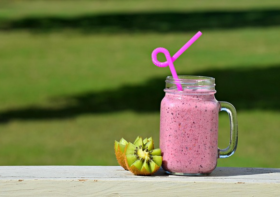The Link Between Stress And Skin Problems: A Comprehensive Guide

Are you tired of dealing with constant breakouts or skin irritations? Look no further, because we’ve got you covered. In this comprehensive guide, we explore the often overlooked connection between stress and skin problems. From acne to eczema, we delve into the various ways that stress can wreak havoc on your skin and provide you with practical tips and solutions to restore your skin’s health and radiance. So prepare to bid farewell to those pesky skin issues as we unveil the secret link between stress and skin problems.

Understanding Stress and its Effects on the Body
Stress is a natural response to everyday challenges and demands, but when it becomes chronic or overwhelming, it can have detrimental effects on both our physical and mental well-being. In its simplest form, stress is the body’s way of preparing itself for a potential threat. But what happens when stress becomes a constant presence in our lives?
What is stress?
Stress can be defined as a physiological and psychological response to external or internal pressures. It triggers a complex cascade of hormonal and neurological changes, preparing the body for the fight-or-flight response. While stress is a normal part of life, chronic stress can be harmful, affecting different systems in the body, including the skin.
How does stress affect the body?
When you experience stress, your body releases stress hormones like cortisol and adrenaline, which increase heart rate, blood pressure, and breathing rate. These physiological changes are necessary in the short term to help you cope with a stressful situation. However, prolonged stress can have numerous negative effects on the body.
Common physical symptoms of stress
Stress can manifest in various physical symptoms, such as headaches, muscle tension, stomachaches, and fatigue. These symptoms often go hand in hand with emotional and psychological changes like irritability, anxiety, and difficulty concentrating. In addition to these well-known signs of stress, many people are unaware that stress can also have a significant impact on the health and appearance of our skin.
The Skin as a Reflection of Internal Health
Our skin serves as a protective barrier against environmental factors, but it also acts as a mirror, reflecting the state of our internal health. When we are stressed, our body undergoes physiological changes that can be visible on the skin. Understanding the importance of skin health and its connection to internal imbalances can help us address stress-related skin problems effectively.
The importance of skin health
Skin health goes beyond simply having a clear complexion. Our skin is the largest organ in the body, and its condition is a reflection of our overall well-being. Healthy skin helps protect us from pathogens, regulates body temperature, and prevents excessive water loss. It is essential to maintain optimal skin health for both functional and aesthetic reasons.
How the skin reflects internal imbalances
The skin can be a window into our internal health, serving as an indicator of imbalances or underlying health conditions. Changes in skin texture, tone, or the development of specific skin problems can signal that something is off internally. By paying attention to these signs, we can gain valuable insights into our body’s overall health.
Skin problems as a result of stress
Stress has a profound impact on the skin, and it can exacerbate existing skin conditions or lead to the development of new ones. Acne, psoriasis, eczema, rosacea, hives, and rashes are some of the skin problems commonly associated with stress. Let’s take a closer look at each of these conditions and their link to stress.
Types of Skin Problems Linked to Stress
Acne and breakouts
Acne is a common skin condition characterized by the development of pimples, blackheads, and whiteheads. Stress can contribute to acne breakouts through various mechanisms. Firstly, stress disrupts the delicate balance of hormones in the body, leading to increased oil production, clogged pores, and inflammation. Additionally, stress can trigger unhealthy coping mechanisms like picking or touching the face, which can further aggravate acne.
Psoriasis flare-ups
Psoriasis is a chronic autoimmune condition that causes the rapid buildup of thick, scaly patches on the skin’s surface. Stress is a known trigger for psoriasis flare-ups, with many individuals reporting an increase in symptoms during stressful periods. The exact mechanisms behind this connection are not fully understood, but it is believed that stress disrupts the immune system, leading to increased inflammation and abnormal skin cell turnover.
Eczema and dermatitis
Eczema and dermatitis refer to a group of skin conditions characterized by red, itchy, and inflamed skin. Stress plays a significant role in the aggravation of eczema symptoms. When stressed, the body releases higher levels of cortisol, which can weaken the skin barrier and increase sensitivity. This makes individuals more susceptible to environmental triggers that can worsen eczema, such as certain fabrics, harsh soaps, or allergens.
Rosacea
Rosacea is a chronic skin condition that primarily affects the face, causing redness, flushing, and the appearance of small blood vessels. While the exact cause of rosacea remains unknown, stress is thought to be a triggering factor. Stress can dilate blood vessels and increase inflammation, both of which contribute to the development and worsening of rosacea symptoms.
Hives and rashes
Stress-induced hives and rashes are common dermatological conditions characterized by itchy, red welts or patches on the skin. When stressed, the body releases histamine, a compound that causes the dilation of blood vessels and the release of fluid into surrounding tissues. This can result in the development of hives or a generalized rash, commonly known as stress-induced urticaria.
The Connection Between Stress and Inflammation
Understanding inflammation
Inflammation is a natural response of the immune system to injury, irritation, or infection. It is characterized by redness, swelling, pain, and heat around the affected area. Inflammation is a crucial part of the body’s defense mechanism, as it helps to eliminate pathogens and promote healing. However, when inflammation becomes chronic, it can have detrimental effects on the body, including the skin.
The role of stress in triggering inflammation
Stress triggers the release of stress hormones, such as cortisol, which can modulate the immune response and contribute to chronic inflammation. Cortisol has anti-inflammatory properties in low levels, but when stress becomes chronic, cortisol levels remain elevated. This prolonged exposure to cortisol can lead to persistent inflammation, which can manifest as various skin conditions.
How inflammation affects the skin
Chronic inflammation has a direct impact on the skin’s health and appearance. It can disrupt the skin barrier function, leading to increased moisture loss, dryness, and sensitivity. Inflammation also triggers the release of pro-inflammatory substances, such as cytokines, which can further exacerbate skin conditions like acne, psoriasis, eczema, and rosacea. Managing stress and inflammation is crucial for maintaining healthy skin.

Hormonal Imbalances and Skin Health
The influence of stress on hormonal balance
Stress has a profound effect on the delicate balance of hormones in our bodies. When stressed, the adrenal glands produce more cortisol, which can disrupt the normal production and regulation of other hormones. This imbalance can affect various bodily functions, including the health and appearance of the skin.
Hormonal changes and acne
Hormonal imbalances, particularly an increase in androgens like testosterone, can lead to the development of acne. Stress-induced hormonal changes can increase sebum production, contribute to clogged pores, and stimulate inflammation, creating an environment conducive to acne formation. Therefore, managing stress is essential in reducing acne breakouts.
Impact of hormonal imbalance on other skin conditions
Hormonal imbalances can also worsen other skin conditions like psoriasis, eczema, and rosacea. The disruption of hormonal regulation can amplify the inflammatory response, increase skin sensitivity, and impair the skin’s natural healing process. By addressing stress and hormonal imbalances, individuals can effectively manage and improve the symptoms of these skin conditions.
Stress-Related Habits that Aggravate Skin Problems
Stress-induced poor dietary choices
When stressed, many people turn to comfort foods that are high in sugar, unhealthy fats, and processed ingredients. These dietary choices can contribute to inflammation, increase oxidative stress, and negatively impact overall skin health. A balanced diet with plenty of fruits, vegetables, whole grains, lean proteins, and healthy fats is crucial for maintaining healthy skin, even during stressful periods.
Effects of alcohol and caffeine on the skin
Alcohol and caffeine are commonly consumed to cope with stress, but these substances can have detrimental effects on the skin. Alcohol dehydrates the body, leading to dryness and dullness of the skin. It can also dilate blood vessels, causing redness and flushing, particularly in individuals with rosacea. Caffeine, on the other hand, can disrupt sleep patterns and worsen anxiety, both of which can negatively impact skin health.
Smoking and its impact on skin health
Smoking is another common habit associated with stress relief, but it wreaks havoc on the skin. Smoking depletes the body of essential nutrients and antioxidants, constricts blood vessels, and impairs collagen production, leading to premature aging, wrinkles, and a dull complexion. Quitting smoking is not only beneficial for overall health but also for maintaining vibrant and youthful-looking skin.
Neglecting skincare routine due to stress
Stress often leaves individuals feeling overwhelmed and exhausted, leading to the neglect of essential skincare routines. Failing to cleanse, moisturize, and protect the skin can contribute to pore congestion, dryness, and an impaired skin barrier. Even during stressful periods, it is vital to maintain a consistent skincare routine to support the skin’s health and resilience.

Ways to Manage and Reduce Stress
Implementing stress management techniques
Managing stress is crucial for maintaining overall well-being and promoting healthy skin. Implementing stress management techniques like deep breathing exercises, meditation, yoga, or engaging in hobbies can help reduce stress levels and promote a sense of calm and relaxation. Finding activities that bring you joy and help you unwind can significantly impact your stress levels.
Regular exercise and its impact on stress
Exercise is a powerful stress management tool that has numerous benefits for the body and mind. Engaging in regular physical activity helps reduce stress by releasing endorphins, boosting mood, improving sleep quality, and increasing self-confidence. Whether it’s going for a jog, taking a dance class, or practicing martial arts, finding an exercise routine that suits your preferences can significantly reduce stress and benefit your skin health.
The role of a healthy diet in stress reduction
A balanced diet rich in nutrients is essential for optimal physical and mental health. Certain foods have stress-reducing properties and can support the body’s response to stress. Incorporating foods like fatty fish, leafy greens, nuts, and whole grains can provide essential vitamins, minerals, and omega-3 fatty acids that promote overall well-being and help manage stress.
Getting enough sleep and rest
Adequate sleep is essential for the body’s ability to recover and rejuvenate. When stressed, sleep patterns can be disrupted, leading to sleep deprivation and fatigue. Lack of sleep not only affects energy levels and mental clarity but also impacts the health and appearance of the skin. Prioritizing quality sleep and creating a soothing bedtime routine can help manage stress and improve skin health.
Practicing relaxation and mindfulness techniques
Engaging in relaxation and mindfulness techniques can help restore balance to the mind and body. Techniques such as progressive muscle relaxation, guided imagery, or aromatherapy can promote a sense of relaxation, reduce anxiety and stress levels, and improve overall well-being. By incorporating these practices into your daily routine, you can better manage stress and support healthy skin.
Tips for Improving Skin Health During Stressful Periods
Maintaining a consistent skincare routine
During stressful periods, it is crucial to maintain a consistent skincare routine to support the skin’s health and resilience. Use a gentle cleanser suited for your skin type, followed by a moisturizer and sunscreen. Consistently removing makeup before bed and avoiding harsh scrubbing or picking at the skin can help minimize the impact of stress on your skin.
Avoiding harsh skincare products
Stress can make the skin more sensitive and reactive, and using harsh skincare products can exacerbate these symptoms. Opt for gentle, fragrance-free products that are suitable for your skin type to avoid further irritation. Avoid ingredients like alcohol, strong acids, and abrasive exfoliants that can disrupt the skin’s barrier and cause dryness or inflammation.
Nourishing the skin from within
Support your skin’s health by nourishing it from within. A diet rich in antioxidants, vitamins, and minerals provides essential nutrients that promote skin health and combat the effects of stress. Foods like berries, leafy greens, nuts, and seeds are beneficial for their anti-inflammatory and antioxidant properties, helping to protect and strengthen the skin.
Protecting the skin from environmental stressors
Environmental stressors like pollution, UV rays, and harsh weather can further aggravate stress-related skin problems. Protect your skin by using a broad-spectrum sunscreen with at least SPF 30, wearing protective clothing, and avoiding excessive sun exposure. Additionally, consider using skincare products with antioxidants and barrier-restoring ingredients to strengthen the skin’s ability to defend against external stressors.
Seeking professional help when necessary
If stress-related skin problems persist or worsen despite self-care measures, it is essential to seek professional help. Dermatologists and healthcare providers can provide expert guidance and recommend appropriate treatment options tailored to your specific needs. They can help address underlying causes, identify triggers, and create a personalized skincare plan to improve your complexion and promote skin health.

When to Seek Professional Help for Stress-Related Skin Problems
When self-care measures are ineffective
While self-care measures are often effective in managing stress-related skin problems, there may be cases where they are not enough. If your symptoms persist or worsen despite adopting healthy lifestyle habits and following a consistent skincare routine, it is advisable to seek professional help. A healthcare provider or dermatologist can assess your condition and recommend appropriate interventions.
Persistent or worsening skin symptoms
If your skin symptoms persist or worsen over time, even during periods of reduced stress, it may be an indication of an underlying issue that requires medical attention. Chronic skin conditions or skin problems that significantly impact your quality of life should be evaluated by a healthcare professional to determine the best course of treatment.
Impact of stress on mental health
Stress-related skin problems can have a significant impact on an individual’s mental health and overall well-being. If your stress levels are overwhelming to the point where they affect your mental health and daily functioning, seeking professional help is crucial. Mental health professionals can provide support, guidance, and treatment options to help you manage stress and improve your overall quality of life.
Consulting dermatologists and healthcare providers
Dermatologists and healthcare providers specialize in diagnosing and treating skin conditions, including those that are related to stress. If you are experiencing stress-related skin problems and have concerns about your skin’s health or appearance, scheduling an appointment with a dermatologist can provide valuable insight and appropriate intervention. They can help tailor a treatment plan to address your specific needs and goals.
Conclusion
Stress and skin problems are closely interconnected, with stress having a profound impact on the health and appearance of our skin. Being aware of the link between stress and skin problems can empower individuals to take proactive steps in managing stress and developing healthy coping mechanisms. By implementing stress management techniques, maintaining a consistent skincare routine, and seeking professional help when necessary, individuals can effectively manage stress-related skin problems and improve their overall well-being. Remember, prioritizing self-care and stress reduction is not only beneficial for your skin but also for your mind, body, and overall quality of life.




Leave a Reply